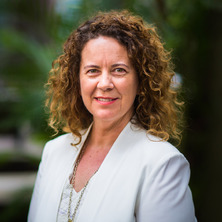Stroke Research at QBI
Balbi Lab

Dr Matilde Balbi's goal is to understand the intrinsic mechanisms of the brain to restore itself following stroke and harness these mechanisms for therapeutic purposes by using a multi-level approach that includes neuronal, systems and behavioural analysis. Her vision is to recruit and enhance the intrinsic neuroprotective mechanisms of the brain through recovery paradigms tailored individually by automated assessment and AI-controlled feedback.
Walker Lab
 Dr Tara Walker is studying how new neurons are produced in the adult brain – a processed called adult neurogenesis. Her recent research has identified a new type of programme cell death called ferroptosis, which has been linked to the cell death that occurs in a number of neurodegenerative diseases and stroke. She will investigate whether changes to diet or environment can halt cognitive decline in an animal model of stroke.
Dr Tara Walker is studying how new neurons are produced in the adult brain – a processed called adult neurogenesis. Her recent research has identified a new type of programme cell death called ferroptosis, which has been linked to the cell death that occurs in a number of neurodegenerative diseases and stroke. She will investigate whether changes to diet or environment can halt cognitive decline in an animal model of stroke.
Robinson Lab
 Associate Professor Gail Robinson's clinical research is focused on both theoretical questions about brain-behaviour relationships like the crucial mechanisms for the executive control of language, and clinical questions regarding cognitive assessment and management of various pathologies including neurodegenerative disorders, neurodevelopmental disorders, brain tumours and stroke.
Associate Professor Gail Robinson's clinical research is focused on both theoretical questions about brain-behaviour relationships like the crucial mechanisms for the executive control of language, and clinical questions regarding cognitive assessment and management of various pathologies including neurodegenerative disorders, neurodevelopmental disorders, brain tumours and stroke.
Mattingley Lab
 Professor Jason Mattingley is the Foundation Chair in Cognitive Neuroscience at The University of Queensland. He is investigating new brain imaging approaches to better understand the systems involved in attention. Professor Mattingley's research is directed toward understanding the neural and cognitive mechanisms that underlie selective attention and the prioritising of sensory inputs, cognitive operations, and motor responses, which can be adversely affected following stroke.
Professor Jason Mattingley is the Foundation Chair in Cognitive Neuroscience at The University of Queensland. He is investigating new brain imaging approaches to better understand the systems involved in attention. Professor Mattingley's research is directed toward understanding the neural and cognitive mechanisms that underlie selective attention and the prioritising of sensory inputs, cognitive operations, and motor responses, which can be adversely affected following stroke.
